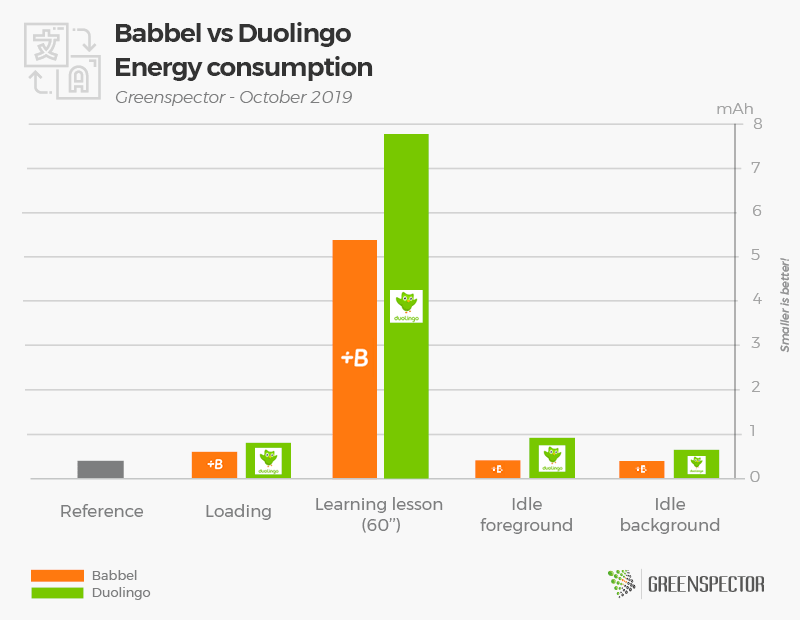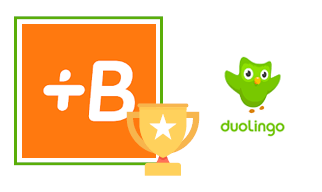Babbel vs Duolingo
For this week’s battle, two online language learning apps will oppose: Babbel vs Duolingo.

In the left corner Babbel, a paid online language learning app created in 2007 in Berlin. When it was founded, the german startup was the first company to offer an online language learning service. Today, Babbel offers learning 14 languages.
In the right corner Duolingo, created in 2011, the application also offers language learning, but it is free of charge. Duolingo offers a richer catalog than Babbel’s: 37 languages.
The weighting
At weighing Babbel is the heavier application with a weight of 90 MB. Its opponent Duolingo is lighter with a weight of 56 MB, or 61% less.
The fight

All the lights are now turned on the fighters and the match can finally begin.
In the first part of the battle to measure the impact of the launch phase of the application, Babbel (1.5 mAh) wins the first round by consuming 25% less than his opponent Duolingo (2 mAh). In the second round that corresponds to the use scenario, Babbel (13.5 mAh) still leads to Duolingo (19.5 mAh) with a 31% lower consumption. To end this confrontation, we have set up two decisive rounds of observation of the rest phases of each opponent. Babbel is still the leader of the battle with a consumption of less than 34% for the background inactivity phase and 54% for the foreground inactivity phase.
The bell rings, end of the match!
The winner

Without any surprise, the app Babbel wins this game on a global score of 17.2 mAh at 25.5 mAh, or 32% less battery consumed compared to his opponent Duolingo. Note that Babbel is also much less consumer in terms of data exchanged, 224 KB against 4.9 MB on the side of Duolingo.
For those who like numbers
| Application | Version | Downloads | Playstore Grade | App weight (MB) | Exchanged data (KB) | Memory consumption (MB) | Energy consumption (mAh) |
|---|---|---|---|---|---|---|---|
| Babbel | 20.36.0 | 10 000 000+ | 4.5 | 90 | 0.224 | 147.9 | 17.2 |
| Duolingo | 4.37.1 | 100 000 000+ | 4.7 | 56 | 4.9 | 230.7 | 25.5 |
On a 1-minute usage scenario, Babbel has a consumption equivalent to that of a video games app such as Candy Crush Saga. As for Duolingo, its consumption is similar to a browser app such as Opera Mini.(Source: Study Consumption of top 30 most popular mobile applications)
The measurements were carried out by our laboratory on the basis of a standardized protocol, respecting a specific user scenario (launch of the app, first lesson). The other scenarios are the launch of the application (20”), inactivity in the foreground (20”) and inactivity in the background (20”). This methodology makes it possible to estimate the embedded application complexity and its energy impact during the use phase.
Find the battle of last week : RocketChat vs Slack
Battles ideas? Contact us!

Kimberley DERUDDER has been digital marketing manager at Greenspector for more than 5 years. Kimberley graduated with a master’s degree in Marketing – Communication and specialized in Inbound Marketing after her first two years at Greenspector. Today in charge of the animation of the marketing, social media and lead generation strategy, she also takes care of app comparisons and battles.
